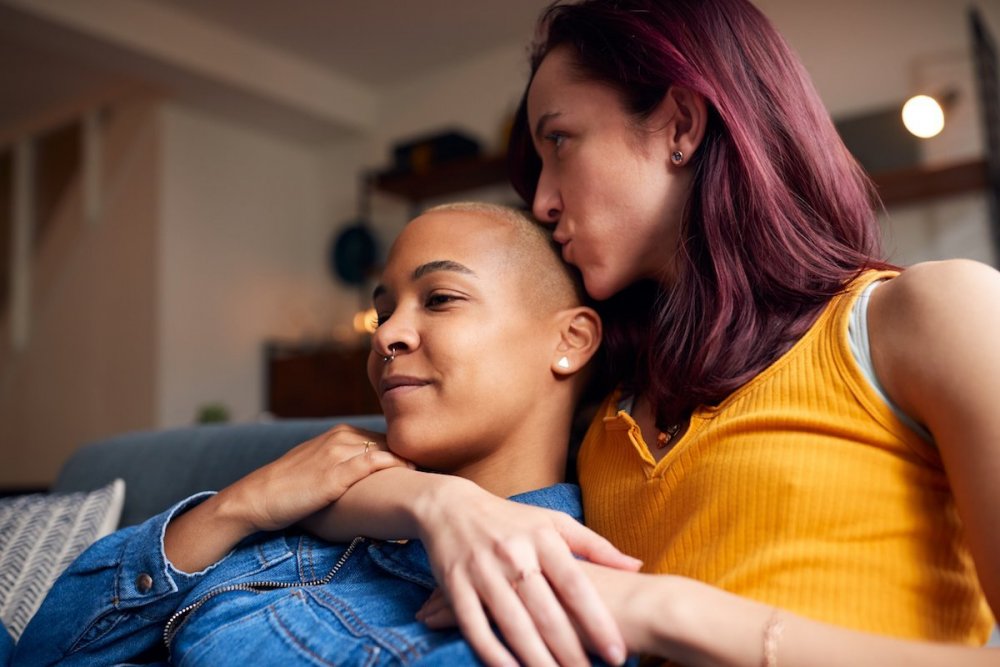Communication is essential when asking a partner to consider an open relationship says Dee Marques. Preparing for any discussions and clarifying why you want to change the relationship dynamic are just two of the eight steps you need to take before initiating a conversation.
Up until relatively recently, there have been established rules about what relationships should look like and these were rarely challenged. But, over time, there has been a change in perception, as it becomes obvious that there’s no one single best way of being in a relationship, since this it is a very personal aspect of our lives.
The figures speak in favour of this change in attitudes and perceptions. For example, four per cent of adults in the US and Canada admit to being in open relationships, and this arrangement is especially popular among Millennials and Gen Z. A UK survey shows a similar percentage of people who have been in an open relationship, plus a further 12 per cent who said they would be willing to give it a go.
RELATED: What is Omnisexuality? Understanding and Debunking Myths
Of course, since this is a consensual decision, it needs to be discussed with your partner – unless an open relationship has been on the cards from the start. Asking for an open relationship may feel intimidating, so here’s a guide for people looking to talk to their partner about considering having one.
What is an open relationship?
There’s no standard definition of an open relationship, although for most people it means being in a non-exclusive relationship or practising consensual non-monogamy. What varies is the type of involvement the partners have with others outside of the primary relationship. This could be an intellectual, emotional or sexual attachment to someone other than your partner – and it could be sporadic or more or less ongoing.
Are these relationships healthy? It depends on how well they meet the needs of everyone involved. As a psychology researcher said, it’s common to see open relationships in black and white and to assume they will either automatically ruin what you have with your partner, or they will fix all of your problems.
Communication is key in open relationships
But this view is too extreme. In some cases, an open relationship will improve satisfaction levels for both partners, as shown by a survey of 1,000 people who were in non-monogamous relationships. In other cases, open relationships just don’t work, for various reasons.
Sometimes, this is due to misunderstandings that could have been avoided if the boundaries were discussed fully. So, if exploring non-monogamy is important to you, you’ll want to know the steps to follow and things to consider when asking for an open relationship.
Asking for an open relationship: 8 steps
Here are eight things to consider before asking to open up any relationship:
1. Know what to expect
The first thing you need to know when talking about an open relationship is that it may take time to come to an agreement. Since this is an important decision, your partner may want to consider all aspects involved or have some time alone to think about it. So, don’t expect it to be something that gets settled after the first conversation. In most cases, couples need time and multiple chats before deciding to go for an open relationship.
2. Examine your own needs
Before asking for an open relationship, it’s worth thinking about what your own motives truly are. Why exactly do you want to pursue a non-monogamous relationship? What do you think it will contribute to your existing relationship? Why is this important to you?
Knowing your deep motivations is important, since asking for an open relationship is not easy and you want to be as articulate as possible. Indeed, you want to be crystal clear in your mind about what exactly you want and why, so you can express it to your partner in the best possible way.
3. How strong is your relationship?
Despite what many people think, open relationships are not a magical fix – and they’re not a “soft” break up either. In fact, if you and your partner are going through a rough patch, talking about an open relationship can make things worse. This is why it’s important to have the right motives (other than resentment or boredom) and to only ask for an open relationship if you’re confident that your bond is strong.
4. Start with a general discussion
Remember how I said it may take several conversations until your partner and you come to an agreement? Well, it can also take a few conversations until you feel it’s the right time to be asking for an open relationship.
“Before asking for an open relationship, it’s worth thinking about what your motives truly are. Why exactly do you want to pursue a non-monogamous relationship? What do you think it will contribute to your existing relationship?”
To start off, you may want to gauge how your partner feels about non-monogamous relationships in general, before asking if they’re willing to be part of one. Keep the questions general and exploratory, along the lines of “What do you think about…?” so that the conversation doesn’t feel threatening. This gives you a better idea if they are receptive to the idea of an open relationship.
5. Highlight the positive
Asking for an open relationship could be interpreted as you suggesting that something is missing between you and your partner. This may be the case, but you want to avoid upsetting your partner and the best way is to also highlight all the positives in your relationship. In the initial conversation, be specific about what you appreciate most about your partner, how much you value your relationship, and why this matters. Do your honest best to reassure and be appreciative of them, so the conversation always stays respectful.
6. Prepare what you’re going to say
Some people will feel insecure when asked about an open relationship, and others may be willing to explore it, but only under certain conditions. Think about what your partner said about consensual non-monogamy when you had a general chat about it to determine where are the main barriers.
Based on that, you can think about how to start the conversation in a way that addresses those barriers and reassures your partner of your feelings for them. It may help to write it down, then put it aside for a day or so and look at it with fresh eyes to see if this is the right approach. Prepare first before discussing an open relationship shutterstock/GaudiLab
Prepare first before discussing an open relationship shutterstock/GaudiLab
One word of caution: beware of the language you use when asking for an open relationship. Words like “polyamory” or “consensual non-monogamy” can mean different things to different people. In conversations like this, you want fluid communication that doesn’t lead to misunderstandings, so it’s best if you explain what you want and why, rather than give it a label that can be misinterpreted.
7. Don’t make accusations
Chances are your partner will want to know your rationale for wanting to be in an open relationship. This is why point #2 is useful, since knowing your deep motivations helps formulate your needs without making them sound as an accusation. Stay away from “you” sentences and keep it to “I” or “us”. For example, instead of saying “sometimes you’re a bit possessive”, say “I’d like to have more freedom in this relationship”.
8. Agree on the do’s and don’ts
Making important changes to a relationship isn’t easy, so it’s best to have an honest conversation and anticipate how you will deal with any problems that may come up. What will be the do’s and don’ts of your open relationship? Does your partner agree? What will you do if you upset them, or if they upset you? In other words, how will you handle the learning curve?
What to do if you disagree
But what if you start talking about an open relationship and your partner says they’re not ready? First of all, you’ll want to make a difference between a definite “no” and “I’m not ready” or “I don’t think it’s a good idea”.
If your partner is not against open relationships but doesn’t want to be in one right now, you can suggest that they start seeing other people when they feel ready. Sometimes, this can alleviate fears and make them feel more in control of the relationship, instead of feeling forced into an arrangement they’re not 100 per cent convinced about.
“Asking for an open relationship could be interpreted as you suggesting that something is missing between you and your partner. You want to avoid upsetting them so highlight all the positives in your relationship too.”
The key is trying to reach a compromise where the needs of both parties are honoured. Open relationships can take many forms, so it’s worth discussing all of them to see if any suits your current relationship.
Unfortunately, in some cases asking for an open relationship will lead to the realisation that your partner and you are incompatible in this respect. If they’re totally against it and this is something you truly need, you’ll have to have a frank conversation about the future of the relationship.
The takeaway: asking for an open relationship
Talking about an open relationship with your partner can be intimidating, so it’s important to plan this conversation in advance. Before you talk to your partner, make sure you’re clear about your motives and needs. Always be appreciative of your relationship and the person you’re with, and give them time to make their decision. And if the outcome isn’t what you expected, remember that respect and honesty are always the best policy. •
Main image: shutterstock/Monkey Business Images
happiness.com | The fine art of being: learn, practise, share
Are you a happiness.com member? Join free now and:
■ enjoy our happiness magazine
■ share and support in our happiness forum
Written by Dee Marques
 A social sciences graduate with a keen interest in languages, communication, and personal development strategies. Dee loves exercising, being out in nature, and discovering warm and sunny places where she can escape the winter.
A social sciences graduate with a keen interest in languages, communication, and personal development strategies. Dee loves exercising, being out in nature, and discovering warm and sunny places where she can escape the winter.





Join the conversation
You are posting as a guest. If you have an account, sign in now to post with your account.
There are no comments to display.